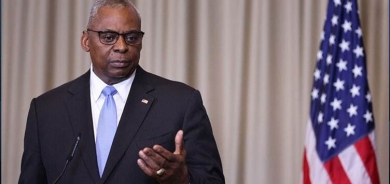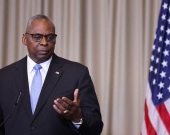Tunisian protesters demand Islamic state

Carrying black and white flags inscribed with Islamic verses, protesters demanded that sharia, or Islamic law, be the basis of a new constitution that parliamentarians are hashing out after last year’s revolution that ousted Zine al-Abidine Ben Ali after 23 years of rule and inspired other “Arab Spring” uprisings.
“Sharia should be the principal source of legislation in the constitution. We reject any constitution that does not include Islam as the state religion,” said Sandli Anwar, who held a sign reading “Islam is our religion, the Koran our constitution.”
“Some people want to separate religion from government in Tunisia. We reject this.”
While Islamists did not play a prominent role in the 2011 uprising, a struggle over the role of religion in politics has since polarized Tunisian politics.
Some Islamist MPs want Tunisia’s new constitution to name sharia as a principal source of legislation. Secularists oppose such demands and worry that Islamists will seek to impose their views and ultimately undermine Tunisia's nascent democracy.
“People don’t decide. God’s rule decides. God bans adultery, corruption, alcohol yet places still sell alcohol, why?” said Zouheir Ashour from Kef. “We need to implement sharia... God rules not (President Moncef) Marzouki.”
While the moderate Islamist Ennahda won October elections and now leads the government, it has chosen to rule in coalition with two secular parties and has promised not to ban alcohol or impose the veil as some secularists initially feared.
Ennahda did not participate in Friday’s protest, organized by a coalition of religious organizations called the Islamic Front, which is devoted primarily to pushing for sharia.
While most Tunisians are Muslims, Tunisia has a long secular legacy, though one that has been tarnished by association with Ben Ali and his predecessor Habib Bourguiba, both dictators. Many Tunisian women shun the veil and defend legal rights in marriage and divorce that are among the region's most progressive.
Asked if she was concerned that sharia law would limit her freedoms, Marwa, a student who wore a niqab or face veil, said: “Nothing honors women like sharia... People moved away from religion under the old regime. People don’t know any more.”
Behind her, hundreds of women chanted: “Women want the implementation of sharia.”
Widening divisions
Islamists were suppressed under Ben Ali, when men who grew beards or went to the mosque were closely watched. Women were discouraged from hiding their hair let alone their face.
Since the revolution, Salafi Islamists who follow a puritanical interpretation of Islam, have become more assertive.
Last year, Salafis protested outside Nessma TV when it aired the French-Iranian film Persepolis, angered by its animated depiction of God, which is banned in Islam. Salafis also attacked a cinema that was showing “Ni Dieu, Ni Maitre,” or “No God, No Master” a film by secularist filmmaker Nadia al-Fani.
Asked what sharia law meant in practice, Mona al-Malki said: “We would not amputate a thief’s hand. No, we would cut off the reasons he has to steal. We would not beat an adulterer, we would stop adultery. We cannot implement sharia to the letter.”
Secular critics fear a gradual encroachment of ever stricter rules, however. They want Ennahda to rein in religious zealots.
One taxi driver, speeding away from the protest, said he had stopped taking passengers with beards or niqab as they kept demanding he turn off the music he plays on his radio.
“They want sharia? So they can amputate hands? Impossible,” he said. “Now is not the time for sharia. Now is the time to think about the economy, about helping the unemployed and bringing back tourism to Tunisia.”
(Reuters)














